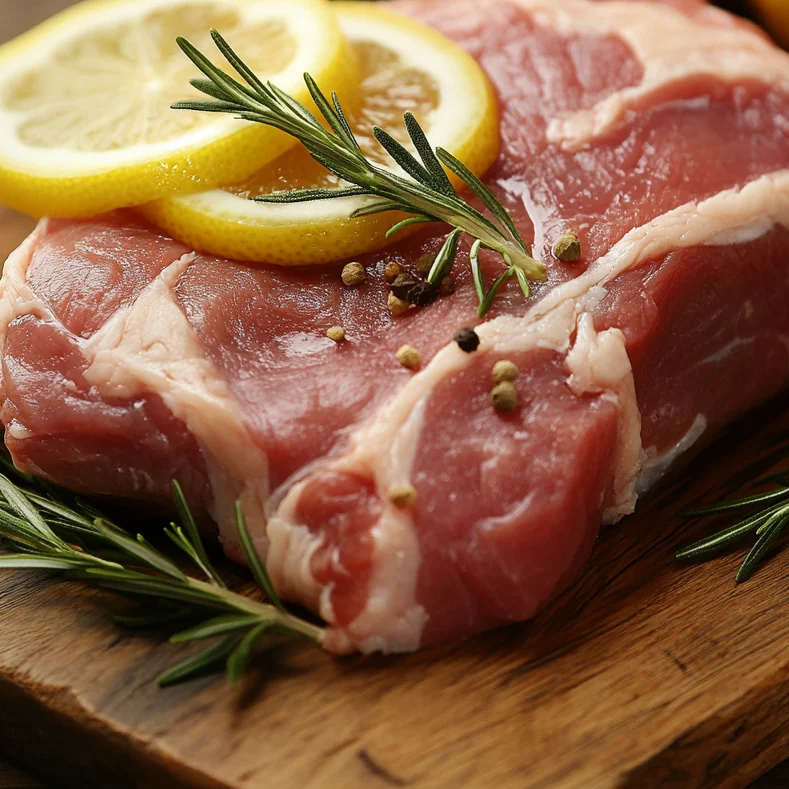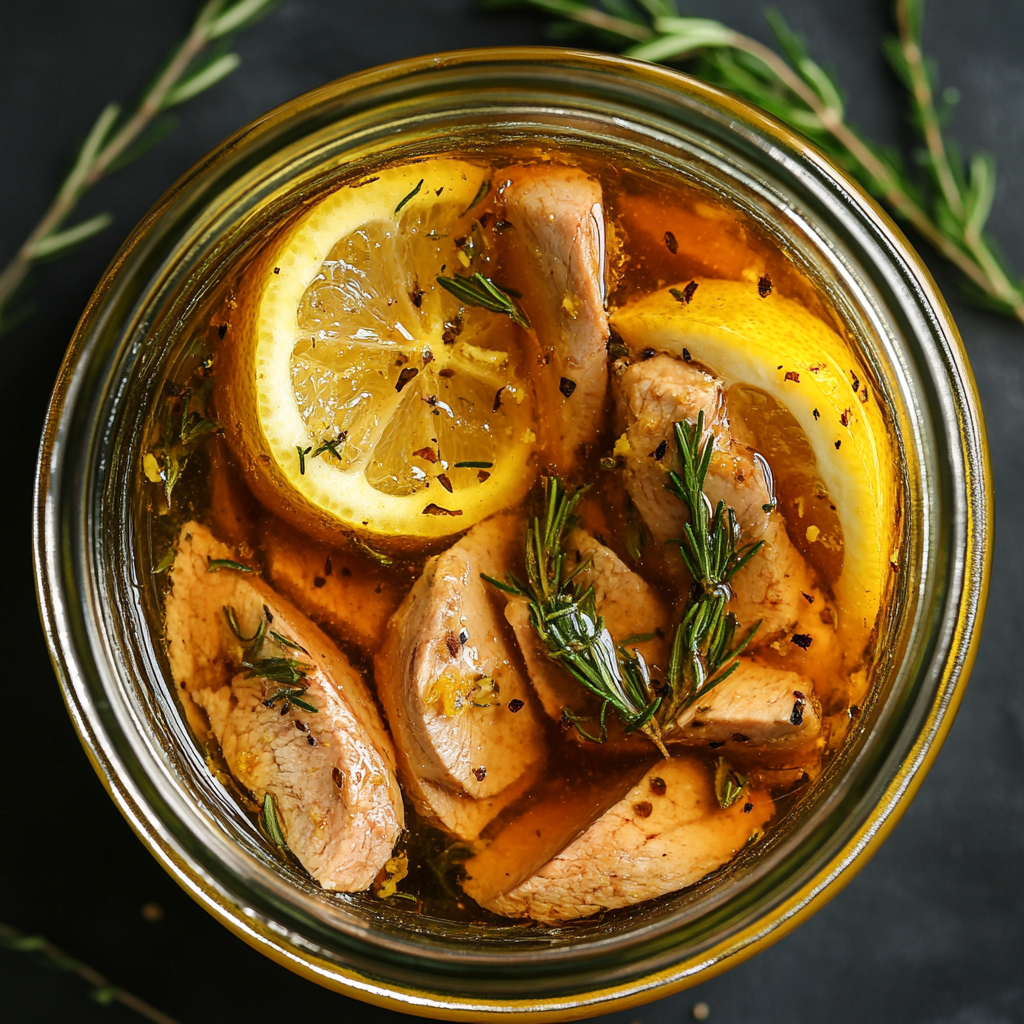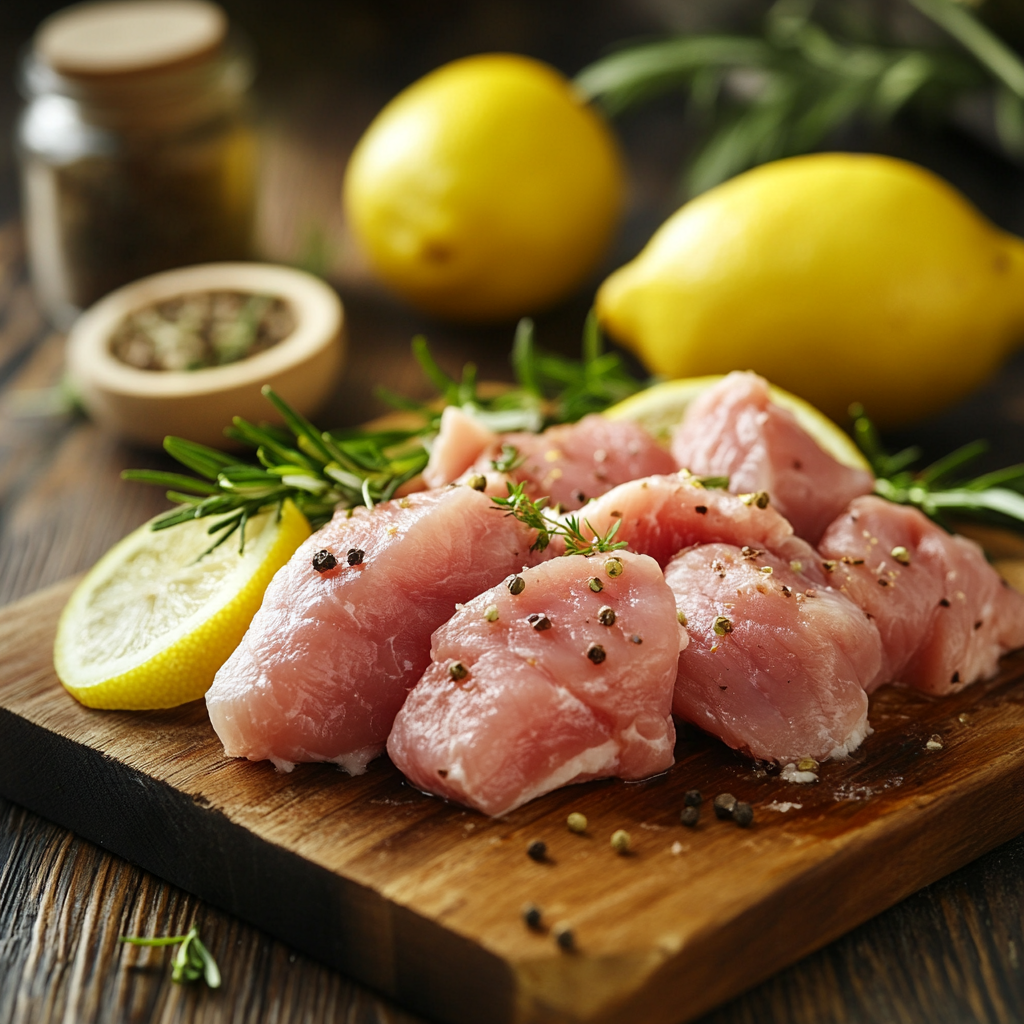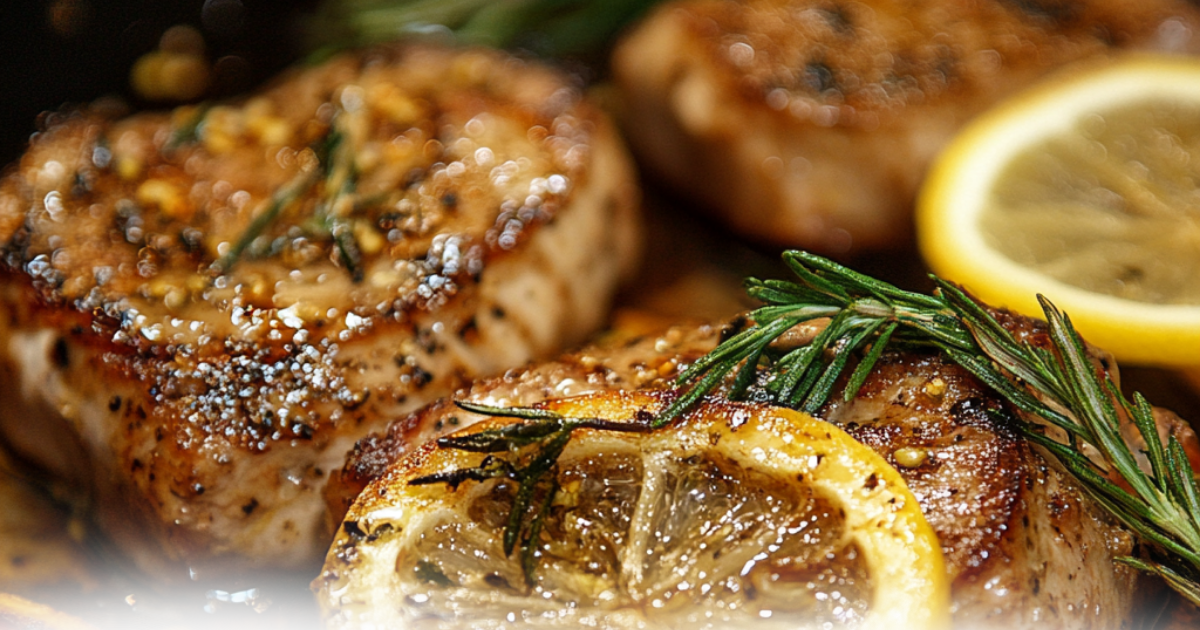Cooking with lemon juice is a fascinating technique that has intrigued culinary enthusiasts for years. It’s commonly used in marinating and even in dishes where the meat appears “cooked” without heat, thanks to the acidic properties of citrus. This article dives into whether you can actually cook raw meat with lemon, how the science behind it works, and what safety concerns to keep in mind. You’ll learn about traditional practices, cultural insights, and expert advice on this tangy topic.
Table of contents
The Science Behind Cooking Meat with Lemon
What Happens to Meat When Exposed to Lemon Juice?
When raw meat meets the tangy zest of lemon juice, something remarkable happens. The acid in lemons breaks down proteins in the meat through a process called denaturation. This chemical reaction alters the meat’s texture, giving it a cooked appearance. Ever wondered why ceviche—a dish prepared with raw fish and lime juice—has a firm, opaque look? That’s denaturation at work!
However, this reaction only affects the outer layer of the meat. The acid doesn’t penetrate deeply, leaving the interior as raw as ever. It’s a bit of culinary trickery—meat may look cooked, but it hasn’t undergone the temperature changes needed to kill bacteria.

Acidic Reactions in Proteins: Denaturation Explained
To put it simply, denaturation disrupts the structure of proteins. Imagine proteins as tightly coiled springs in raw meat. When exposed to lemon juice, the acid unwinds these coils, changing their form and texture. While this mimics the effects of heat, it’s important to note that acid doesn’t provide the same safety benefits as cooking.
LSI keywords like acid marination, protein denaturation, and chemical reaction in food come into play here. Lemon juice alters the meat visually and texturally but doesn’t eliminate harmful pathogens.
Does Lemon Juice Kill Bacteria in Meat?
Here’s the hard truth: lemon juice isn’t a substitute for heat. While acidic environments can hinder some bacterial growth, they won’t eliminate pathogens like Salmonella or E. coli. These stubborn microbes require temperatures above 165°F to be fully eradicated.
So, while marinating meat with lemon juice enhances flavor and tenderizes the texture, it doesn’t guarantee food safety. That’s why it’s crucial to handle raw meat with care, regardless of the preparation method.
Methods and Practices for Marinating with Lemon
How to Use Lemon Juice for Marinating Meat Safely
Marinating meat with lemon juice is a simple yet effective way to enhance flavor and improve texture. The acid in lemon juice breaks down tough fibers in meat, leaving it tender and juicy. However, if you’ve ever wondered, “Can you cook raw meat with lemon?”, the answer isn’t straightforward. While lemon gives the appearance of cooking, it doesn’t guarantee safety against harmful bacteria.

To marinate safely, always start with fresh meat. Combine lemon juice with oil, herbs, garlic, and other spices to create a flavorful marinade. For chicken, beef, or fish, marinate in a sealed container and refrigerate it immediately. Limit marinating time to avoid overly acidic meat—30 minutes to 2 hours is usually ideal.
When you’re done marinating, discard the lemon juice. Never reuse a marinade that’s come into contact with raw meat unless it’s boiled first. This prevents cross-contamination and keeps your dishes safe to eat.
Common Dishes Featuring Lemon-Marinated Meat
Dishes that use lemon-marinated meat are celebrated across various cuisines. Ceviche is one famous example, where raw fish is “cooked” in lime or lemon juice. While the dish is safe when prepared with ultra-fresh fish, it’s not recommended for meat like beef or poultry due to food safety risks.
Another classic is grilled lemon chicken. While the chicken isn’t fully cooked by the marinade, the lemon flavor enhances the taste, especially when paired with herbs like thyme or rosemary. Similarly, Middle Eastern kebabs often feature lamb marinated in citrus, oil, and spices for a zesty kick.
Step-by-Step Guide to Marinating with Lemon
- Prepare Your Marinade: Mix fresh lemon juice, olive oil, salt, pepper, and desired spices.
- Submerge the Meat: Ensure the meat is evenly coated for consistent flavor.
- Refrigerate: Keep the marinated meat in the fridge, not at room temperature.
- Cook Thoroughly: Heat to the recommended temperature for your meat type to ensure safety.
While the question “Can you cook raw meat with lemon?” often arises, it’s better to treat lemon juice as a flavor booster, not a substitute for heat.
Comparing Cooking Raw Meat with Lemon to Traditional Cooking
Differences Between Acid Cooking and Heat Cooking
Acid cooking, like marinating meat with lemon, creates a unique texture by breaking down proteins. However, unlike traditional heat cooking, it doesn’t kill bacteria or make the meat safe to eat. When you cook raw meat with lemon, the acid alters the exterior, but the internal temperature remains unchanged.
Heat cooking, on the other hand, not only transforms texture but also eliminates harmful microbes. Grilling, roasting, or frying meat involves temperatures that denature proteins throughout, ensuring the entire piece is safe for consumption.

So, while lemon juice offers a convenient way to tenderize meat and add flavor, it’s not a replacement for the safety and thoroughness of heat-based methods.
Pros and Cons of Using Lemon Juice as a Cooking Agent
Using lemon juice has its perks. It’s a natural tenderizer, enhances flavor, and is easy to use. Plus, it’s a great way to prepare lighter dishes without relying on heavy sauces. But it comes with downsides too. Acid cooking doesn’t eliminate bacteria, which means the meat could still pose health risks if consumed raw.
Moreover, over-marinating with lemon juice can result in mushy textures. The acid continues to break down proteins, which may make the meat less palatable if left for too long.
Cultural Practices of Acid Cooking Across the World
Acid cooking with citrus is common in many cuisines. In South America, ceviche is a beloved staple, showcasing fish cooked with lime or lemon. In Italy, thin slices of beef carpaccio are often dressed with lemon juice, olive oil, and capers.
These dishes highlight the culinary creativity of using acid to prepare food. But here’s the catch: Can you cook raw meat with lemon? While it’s tempting to assume so based on appearance, these practices often rely on safe preparation techniques or specific ingredients like fresh seafood that differ from traditional meat.
Safety Concerns and Misconceptions
Can Lemon Juice Make Raw Meat Safe to Eat?
One of the biggest questions people ask is, “Can you cook raw meat with lemon?” While it’s tempting to think so, the answer is a bit more complicated. Lemon juice doesn’t kill harmful bacteria like Salmonella or E. coli. These microorganisms can survive acidic environments and require heat to be completely destroyed.
Though marinating with lemon juice can give meat a cooked look and tender texture, it doesn’t make it safe to eat raw. If you plan to use lemon juice for marination, always cook the meat afterward to the recommended internal temperature to ensure safety.
Understanding Food Safety and Pathogens
Handling raw meat always comes with risks, but proper precautions can minimize them. Always marinate meat in the refrigerator, as leaving it at room temperature encourages bacterial growth. Cross-contamination is another danger—use separate utensils and cutting boards for raw meat and other ingredients.
When marinating with lemon juice, remember to discard the used marinade or boil it thoroughly if you want to reuse it as a sauce. This simple step can eliminate bacteria and make your dish safe.
Common Misunderstandings About Acid Cooking
Many assume that since lemon juice can alter the texture of meat, it must also cook it safely. However, this is a misconception. The chemical changes caused by lemon juice are surface-level and don’t affect bacteria lurking inside. Furthermore, overly acidic marination can degrade the texture of meat, turning it mushy instead of tender.
If you’re looking for a flavorful marinade but want peace of mind, consider using heat after marination. This ensures your dish is both delicious and safe.
Expert Opinions and Research Findings
Insights from Food Scientists on Acid Cooking
Food scientists agree that while acids like lemon juice can denature proteins, they are no replacement for heat when it comes to safety. Research shows that acidic marinades can reduce surface bacteria slightly, but they don’t penetrate deep enough to neutralize harmful pathogens.
The visual change caused by acid, often mistaken for cooking, is purely cosmetic. Experts recommend treating acid-marinated meat as raw, ensuring it’s cooked to proper internal temperatures before consumption.
Medical Advice on Consuming Acid-Marinated Meat
Health professionals warn against eating meat marinated in lemon juice without further cooking. While dishes like ceviche, which use citrus to “cook” fish, are considered safe when prepared with fresh, high-quality ingredients, meat like chicken, beef, or pork is a different story. These meats carry higher risks of bacterial contamination and require heat to be safe.
If you’re unsure about food safety practices, err on the side of caution. For a flavorful yet safe dish, follow your marination with thorough cooking.
For more citrus-inspired recipes, check out Lemon-Pepper Grilled Chicken: A Juicy, Flavorful Delight for Your Grill on Zena Recipes.
Frequently Asked Questions
Does Lemon Cook Meat Like Heat?
Not exactly. Many people ask, “Can you cook raw meat with lemon?” because it looks cooked after marination. While the acid in lemon juice changes the texture and appearance of meat, it doesn’t raise its temperature or kill harmful bacteria. Heat-based cooking is necessary to ensure meat is safe to eat.
What Meats Are Best for Acid Marination?
Lemon juice works well with a variety of meats, especially chicken, fish, and thin cuts of beef or pork. Its tangy flavor enhances the taste, and the acid tenderizes the meat. However, always follow up with proper cooking to avoid any health risks.
How Long Should You Marinate Meat with Lemon?
Timing is key. For fish, 30 minutes is usually enough. For chicken or beef, marinate for 1-2 hours. Over-marinating can break down the texture too much, leaving the meat mushy.

